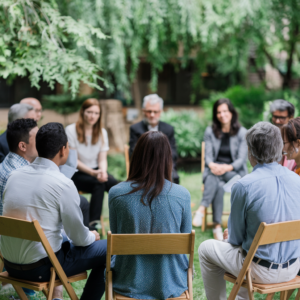The Psychological Impact of Migration: Challenges and Coping Strategies

Migration is a complex and challenging experience that deeply affects mental health. Being away from family, adapting to a new culture and environment, and the pressures of rebuilding life in a foreign country can lead to feelings of loneliness, anxiety, and stress. In such circumstances, maintaining mental well-being becomes a crucial priority during the migration process. While migration brings new opportunities and experiences, actively taking care of mental health and seeking available support systems are essential for overcoming its psychological challenges.
To explore this topic further, Nowruz Media’s partner media; AWNA spoke with Waheed Noorzad, firmer head of the psychotherapy department at Herat Regional Hospital. In this interview, he shares insights and strategies to help migrants manage mental health challenges and build a positive experience in their new life.
Q&A with Dr. Waheed Noorzad
Q: How does migration impact mental health?
A: Migration can have both positive and negative psychological effects, depending on an individual’s personality, coping mechanisms, and previous living conditions. Cultural shifts and changes in social norms can influence some individuals positively, while for others, it may result in stress and emotional distress.
Q: What are the main factors contributing to mental distress in migration?
A: Environmental change, new cultural norms, unfamiliar traditions, language barriers, bureaucratic and social systems, loss of social status, and a lack of belonging can all contribute to psychological distress among migrants.
Q: How does age affect the risk of developing mental health issues in migration?
A: Younger individuals adapt more easily to new environments. However, middle-aged and elderly migrants often struggle to adjust to strict and controlled societal systems in their host countries. As a result, older migrants face a higher risk of developing mental health disorders.
Q: What are the most common mental health disorders among migrants?
A: The most common issues include adjustment disorder and depression. Adjustment disorder is an unhealthy reaction to life changes that an average person might consider simply “bad luck.” It is not necessarily a worsening of a pre-existing psychiatric condition but rather an emotional response to significant changes.
Q: Are migration-related mental health effects short-term or long-term?
A: In most cases, the psychological effects of migration are short-term. Generally, individuals take between six months and two years to adjust to their new environment. However, occasional symptoms of psychological distress may still appear during this period.
Q: Do men and women experience migration-related psychological effects differently?
A: If we specifically analyze Afghan migrants, men experience more psychological distress than women. In Afghanistan’s patriarchal society, women have traditionally been marginalized with limited social engagement. However, in a new environment, they often experience greater personal freedoms, which can positively impact their mental health. On the other hand, Afghan men, who are accustomed to male-dominated societal norms, may struggle to adapt to concepts such as gender equality and changes in women’s dress codes. These differences can create psychological pressure and lead to long-term mental health challenges.
Q: What strategies do you recommend for managing mental health during migration?
A: Engaging in physical activities such as exercise, yoga, and cycling, socializing with trusted friends, participating in therapy sessions, reading, listening to music, practicing spirituality, and learning the local language are effective ways to maintain mental well-being during migration.
Conclusion: Prioritizing Mental Health in Migration
Maintaining mental health during migration requires consistent self-care and awareness. Accepting various emotions, building connections with the new community, and practicing self-care are essential for managing psychological challenges. Seeking professional and social support systems can also help individuals navigate change more effectively and create a positive experience in their new life. Ultimately, mental well-being is a fundamental pillar of success and happiness in the migration journey.



